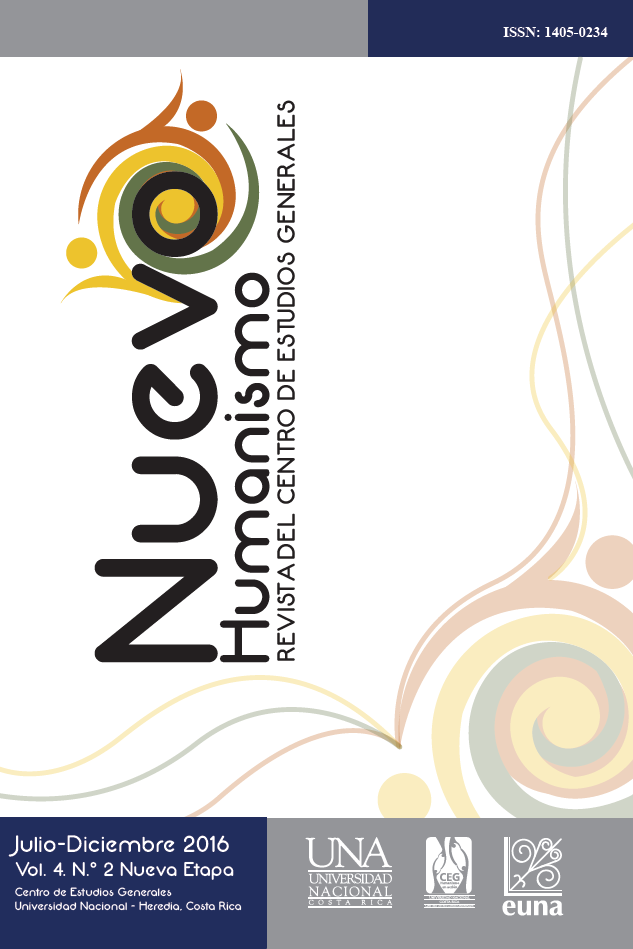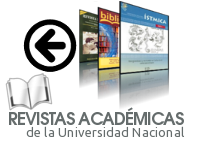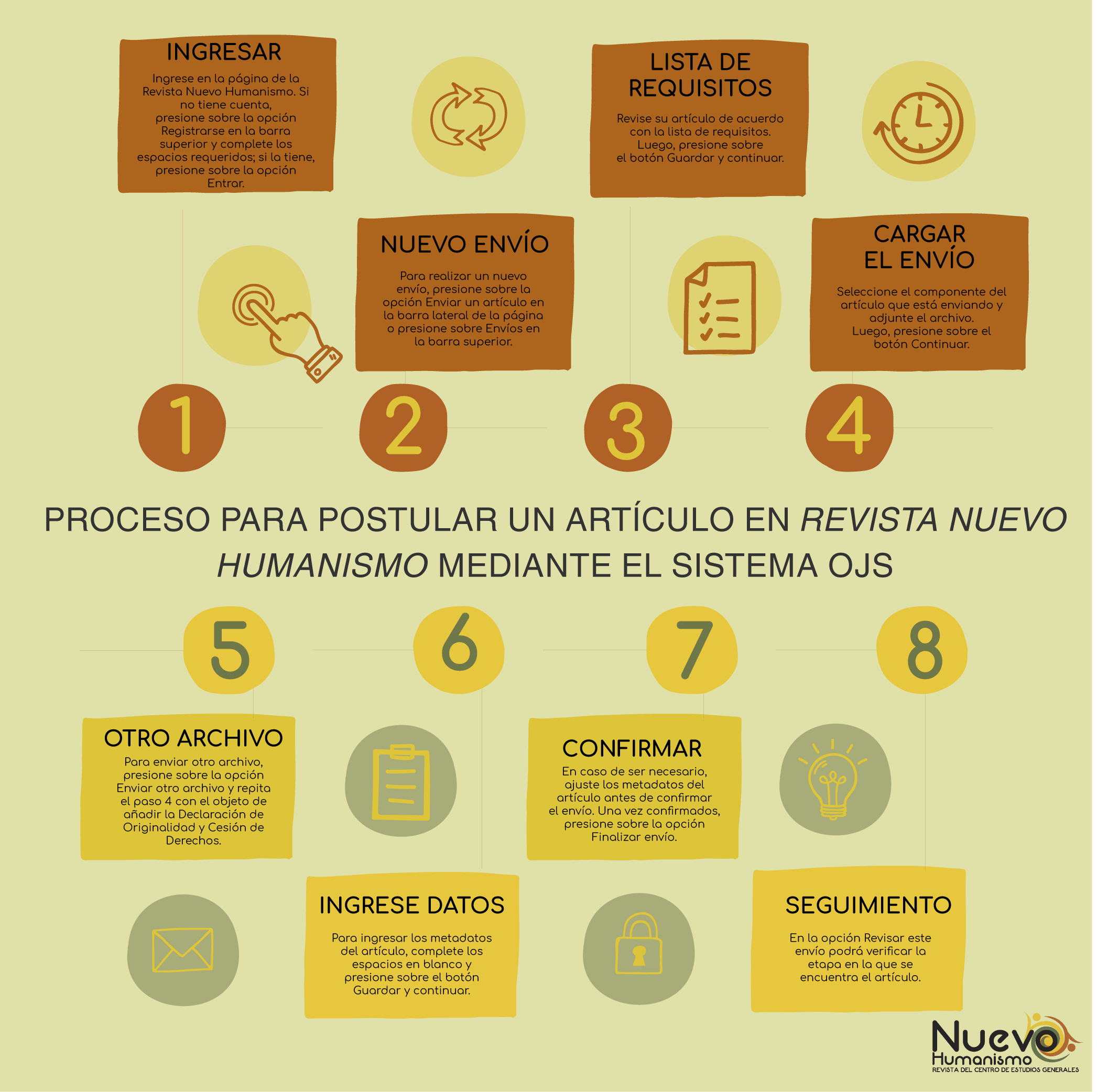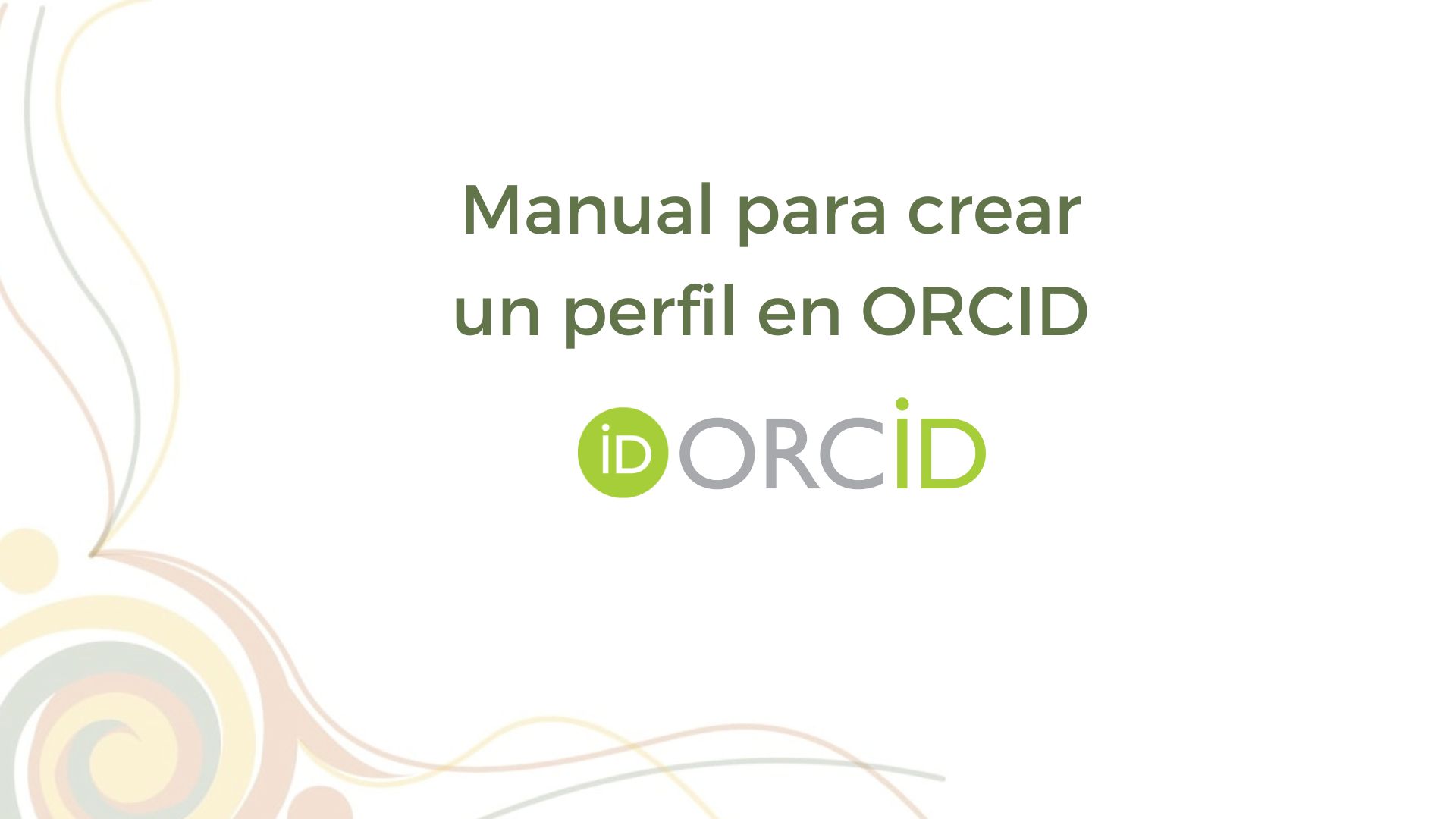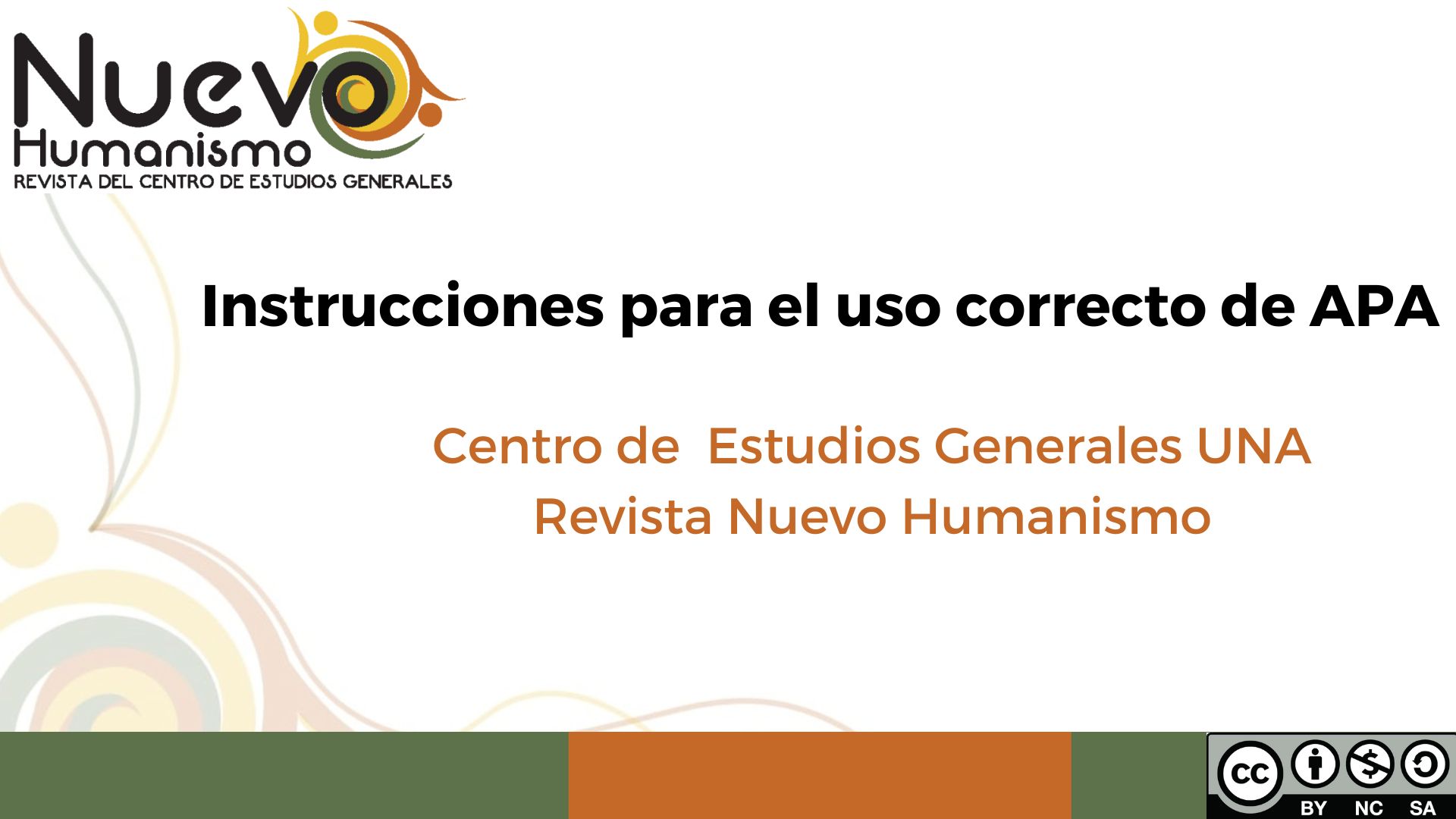La Cátedra Rolando García de humanismo, interdisciplina y complejidad del CEG-UNA
DOI:
https://doi.org/10.15359/rnh.4-2.1Keywords:
epistemology, interdisciplina, transdisciplina, complexity, New HumanismAbstract
In this article we introduce the readers to one of three most important projects promoted by the new authorities of the Centro de Estudios Generales (CEG, from now on) de la UNA (Centre for General Studies of the National University of Costa Rica) for the period 2015- 2020. This Project aims at the creation of The Rolando García Chair for Humanism, Interdiscipline and Complexity (CRG, from now on), whose goal is to advance the establishment of a conceptual and methodological framework for interdisciplinary work at the CEG. In the pages that follow, we present a summary of the antecedent knowledge (preliminary conceptual framework) on which the goals, the scope and the chair´s workplan, as well as the stages and the methodology for the project´s teamwork oriented towards the production of several documents and other results that will serve as launching pad for the interdisciplinary work at the CEG.References
Axell, R. L. and J. L. Epstein. (1994). Agent-based Modelling: Understanding Our Creations. The Bulletin of the Santa Fe Institute, 9 (2), 28-32
Baraona, Miguel. (2015). La trama y los hilos. Modernización capitalista y las cuatro espirales de la modernidad. San José-Costa Rica: EUNA.
Baraona Miguel. (s.f). El capitalismo y su limitante endógena.
Baraona, M. y Mata, E. (2015). Los Estudios Generales como pedagogía multidisciplinaria en vías a la interdisciplina. Revista Nuevo Humanismo, 3(1), 39 - 53.
Baraona, M. y Herra E. (2016). Danzando en la bruma junto al abismo: Las cuatro crisis y el futuro de la humanidad. San José-Costa Rica: Arlekin.
Baraona, M y Mora J. (s.f). Hacia una epistemología del Nuevo Humanismo. San José-Costa Rica: Editorial de la Universidad Estatal a Distancia.
Bookchin, M. (1962). Our Synthetic Environment. New York: Knopf.
Bookchin, M. (1970). Ecology and Revolutionary Thought, with the Ecology Action East Manifesto and toward an Ecological Solution. New York: Times Change Press.
Bookchin, M. (1974). Toward an Ecological Society. Berkeley: Roots.
Bookchin, M. (1984). What is Radical Social Ecology?. Harbinger, 3(1).
Bookchin, M. (1985). Re-enchanting humanity: a defense of the human spirit against antihumanism, misanthropy, mysticism, and primitivism. London and New York: Cassell.
Bookchin, M. (1987). Philosophy of Social Ecology. New York: Black Rose Books.
Bookchin, M. (1990). The Philosophy of Social Ecology: Essays on Dialectical Naturalism. Montreal: Black Rose Books.
Bookchin, M. (1996). The Third Revolution (Vol. 1). London: Cassell.
Bookchin, M. (1998). The Third Revolution (Vol. 2). London: Cassell.
Bookchin, M. (2004). The Third Revolution (Vol. 3). London: Continuum.
Bookchin, M. (2005). The Third Revolution (Vol. 4). London: Continuum.
Centro de Estudios Generales de la UNA. (2009). Rediseño curricular de formación humanística del CEG.
Cioffi-Revilla, C. (2010). A Methodology for Complex Social Simulations. Journal of Artificial Societies and Social Simulation, 13(1). doi: 10.18564/jasss.1528
Cioffi-Revilla, C. (2012). Complexity Science for Boosting Intelligence Analysis. National Security Challenges: Insights from Social, Neurobiological, and Complexity Studies. Office of the Secretary of Defense.
Cioffi-Revilla, C. (2014). Seeing it Coming: A Complexity Approach to Disasters and Humanitarian Crises. Complexity. doi: 10.1002/cplx.21522
Davies, M. and Devlin, M. (2007). Interdisciplinary Higher Education: Implications for Teaching and Learning. Australia-Melbourne: The Center for the Study of Higher Education.
Dawkins, R. (1987). The Blind Watchmaker. Why the Evidence of Evolution Reveals a Universe Without Design. New York-London: WW. Norton & Company.
García, R. (2000). El conocimiento en construcción. De las formulaciones de Jean Piaget a la teoría de sistemas complejos. Barcelona: Editorial Gedisa.
García, R. (2006). Sistemas complejos. Conceptos, método y fundamentación epistemológica de la investigación interdisciplinaria. Barcelona: Editorial Gedisa.
Kosic, K. (1967). Dialéctica de lo concreto. México: Editorial Grijalba.
Le Moigne, J. L. (1977). La théorie du systeme général. Paris: Presses Universitaires de France.
Miller, T. R., Baird, T. D., Littlefield, C. M. Kofinas, G. Chapin, III, F. and Redman, C. L. (2008). Epistemological Pluralism: Reorganizing Interdisciplinary research. Magazine Ecology and Society, 13(2), 20- 46.
Morín, E. (1984). Ciencia con consciencia. Barcelona: Editorial Gedisa.
Morín, E. (1993). Introduction a la complexité. Paris: ATLANTECH.
Petrie, Hugh G. (1976). Do You See What I See? The Epistemology of Interdisciplinary Inquiry. Journal of Aesthetic Education, 10(1), 29-43. doi: 10.2307/3332007
Piaget, J. y García, R. (1982). Psicogénesis e historia de la ciencia. México: Siglo XXI.
Rojas, R. y Baraona, M. (2015). Programa para el porvenir del CEG. UNA-CEG: Documento interno.
Solano Alpízar, J. (2016). La sociedad ignorante. Reflexiones en torno al alterhumanismo. San José- Costa Rica: EUNA.
Sotolongo Codina, P. L. y Delgado Díaz, C. J. (2006). La revolución contemporánea del saber y la complejidad social. Hacia unas ciencias sociales de nuevo tipo. Buenos Aires: CLACSO.
Varela, F. J. y Maturana, H. (1973). De máquinas y seres vivos: Una teoría sobre la organización biológica. Santiago de Chile: Editorial Universitaria.

